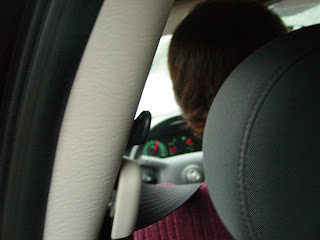 This week’s “self” readings dealt with the idea of “self-concept.” Particularly, these readings covered the issues of how we discover/obtain our self-concept, and whether it is malleable to change. Before starting the readings, I was already suspicious of self-concept. This suspicion arose from the 2nd week readings on self-knowledge. As we learned last time, we aren’t very good at knowing ourselves (e.g., what motivates us, what predictions can we make about our future behavior, etc.). To me, before the readings, the idea of self-concept seemed to come from our self-knowledge. If we aren’t good at knowing ourselves, then how would we be good at discovering a stable self-concept? To tell the truth, I’m still not confident in the idea of self-concept after reading this week’s articles.
This week’s “self” readings dealt with the idea of “self-concept.” Particularly, these readings covered the issues of how we discover/obtain our self-concept, and whether it is malleable to change. Before starting the readings, I was already suspicious of self-concept. This suspicion arose from the 2nd week readings on self-knowledge. As we learned last time, we aren’t very good at knowing ourselves (e.g., what motivates us, what predictions can we make about our future behavior, etc.). To me, before the readings, the idea of self-concept seemed to come from our self-knowledge. If we aren’t good at knowing ourselves, then how would we be good at discovering a stable self-concept? To tell the truth, I’m still not confident in the idea of self-concept after reading this week’s articles.
That’s not to say that self-concept is a bad thing though. Firstly, the mechanism behind self-concept seems to be a powerful encoding device. Our ability to recall information is greatly enhanced if that information is related to us (i.e., encoded through the self-concept). For instance, if I were presented with a list of words, I would likely remember those words that I felt described myself (e.g., Caucasian, music, happy, knowledge, etc.) than others (e.g., blonde, chair, suit, etc.). As mentioned last week, there is a lot of information out there in the “real world,” and much of it is processed by an adaptive unconscious. Perhaps this encoding ability of the self developed as a way for us to remember and act on important information.
Additionally, parts of the “self” are good at protecting us from the stresses of daily life. When we encounter stressful events, our self-concepts change, and this change has less to do with mood and more to do with the objective experience of the stress. We seem to describe ourselves with more negative attributes under stress than not. Yet components of the self help us cope with these events. Under stress, we rate our negative attributes as less important, we compartmentalize more so that we can focus on the positive, and we view ourselves as more complex. If we view ourselves as more complex, then we might have more positive attributes to focus on and activation of negative attributes won’t be needed.
Perhaps the most interesting aspect of the self-concept to me is what Goldstein and Cialdini call the “spy-glass self.” According to self-perception theory, we infer our self-attributes by observing the actions we carry out. Well, they go a step further. They posit, and found evidence, that when we identify with another person, we are likely to incorporate his/her attributes into our self-concept after observing this person’s behavior. So after participants are told that they have similar brain wave patterns as another person, and this other person is observed being helpful, then those participants will also be more helpful. I think this is particularly interesting for two reasons. Firstly, it goes back to the idea that self-knowledge is really just a story that we make up for ourselves, of the person that we think we are. But secondly, it reminds me of the Social Cognitive Interface view of self from Kurzban and Aktipis. According to this view, the self is a set of mechanisms that helps us negotiate the social world (e.g., helps us attain cooperation, acceptance, mates, etc.). It would then make sense that we would gain aspects of our self-knowledge by observing other people. It’s a widely known effect that we like things that are similar to us. If I incorporated attributes of another person into my self-concept, then perhaps I’ll increase my chances of acceptance, because I am now more similar to this person. I don’t know, it’s pretty cool though.
Citations:
Goldstein, N. J., & Cialdini, R. B. (2007). The spyglass self: A model of vicarious self-perception. Journal of Personality and Social Psychology, 92, 402-417.
Hur, Y-M., McGue, M., & Iacono, W. G. (1998). The structure of self-concept in female pre-adolescent twins: A behavioral genetic approach. Journal of Personality and Social Psychology, 74, 1069-1077.
Rogers, T. B., Kuipers, N. A., & Kirker, W. S. (1977). Self-reference and the encoding of personal information. Journal of Personality and Social Psychology, 35, 677-688.
Showers, C. J., Abramson, L. Y., & Hogan, M. E. (1998). The dynamic self: How the content and structure of the self-concept change with mood. Journal of Personality and Social Psychology, 75, 478-493.
Turner, R. H. (1976). The real self: From institution to impulse. American Journal of Sociology, 81, 989-1016.
 Harvard Social psychologist, Daniel Gilbert, recently had a talk posted on TED, though it looks like the talk was originally given in 2005.
Harvard Social psychologist, Daniel Gilbert, recently had a talk posted on TED, though it looks like the talk was originally given in 2005.





